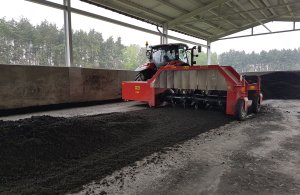AirCarbon Thermoplastic, World's First Carbon-Negative Chair (Credit: chuwa, oskay and KI.com)
A California-based chemical technologies company claims to have created a manufacturing technology that captures carbon and turns it into a material that replicates oil-based plastics, all while significantly out-competing on price, according to an article on inhabitat.com. Newlight Technologies feels that its new discovery, a more affordable alternative called AirCarbon, has the potential to completely revolutionize the plastics manufacturing industry—starting with office furniture.
The world is addicted to oil, and not just the kind we put in our automobiles. Petroleum is lurking everywhere, most notably in the plastics that permeate our lives. Many eco-advocates encourage elimination of plastic toys, packaging, and dishware as a way to limit consumption of this filthy fossil fuel, but it can be hard.
Although it sounds magical, the concept behind AirCarbon is simple enough: Separate carbon from air—carbon that would otherwise be in the air we are breathing right now—and use what’s leftover to make plastic.
“Inspired by carbon-capturing processes found in nature, and as a result of Newlight’s breakthroughs in gas conversion yield and polymer performance, AirCarbon-based materials can replicate the performance of oil-based plastics while significantly out-competing on price, representing a market-driven solution to displacing oil, reducing material cost and stabilizing climate change,” explains a press release.
Now, the idea of pulling carbon from the air isn’t a new one: in fact, scientists have been trying to harvest air pollution in this way for a long time. While it was possible, it was never cost-effective, until now. Newlight Technologies founders and childhood friends Mark Herrema and Kenton Kimmel finally had a breakthrough when they developed a ten-times more efficient bio-catalyst, which strips the carbon from a liquefied gas and rearranges it into a long chain plastic molecule.










